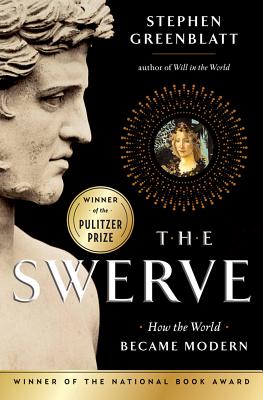The Swerve is a very well-written book thatstrikes many wonderful chords. Chief of which is the centrality of the book to the life of the early Renaissance humanists--Poggio Bracciolini being our man of the hour, at least in respect to his love for books. His most important find was Lucretius' On the Nature of Things, a text that doesn't hold the same personal significance for me that it does for Professor Greenblatt.
Lucretius was my second graduate seminar in Latin, by then my fourth or fifth plunge into an academic program for which I was largely unprepared, and I had already long since demythologized and reconfigured religion, death/life, etc. through many different modern philosophies in earlier academic forays. I forgive Greenblatt, however, his subtitle "How the World Became Modern," the sort of claim of significance now found on seemingly every third history book, not because he convinces me of the seminal importance of Lucretius to the Renaissance, but because he vividly creates through his breadth of knowledge such a compelling picture of the world in which this discovery took place and was discussed. I think, at a time when the book faces a technological transformation analogous to the one ending the elegance of the handwritten copy at which Poggio excelled, it is instructive to be reminded of the fragility and uncertainty that threatens the survival of any book--and our debt to those who loved and lost and found before us.
--Gerald

No comments:
Post a Comment